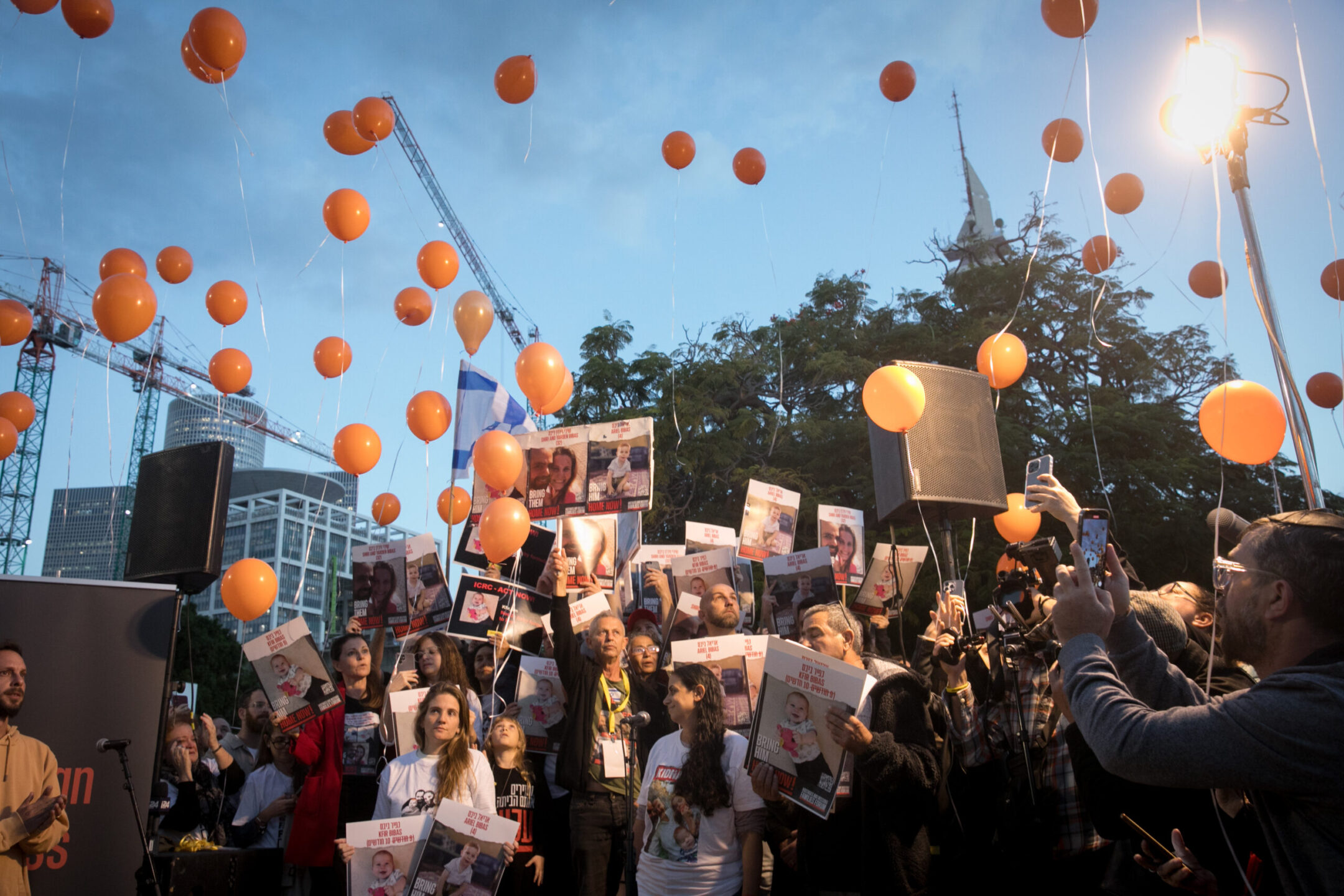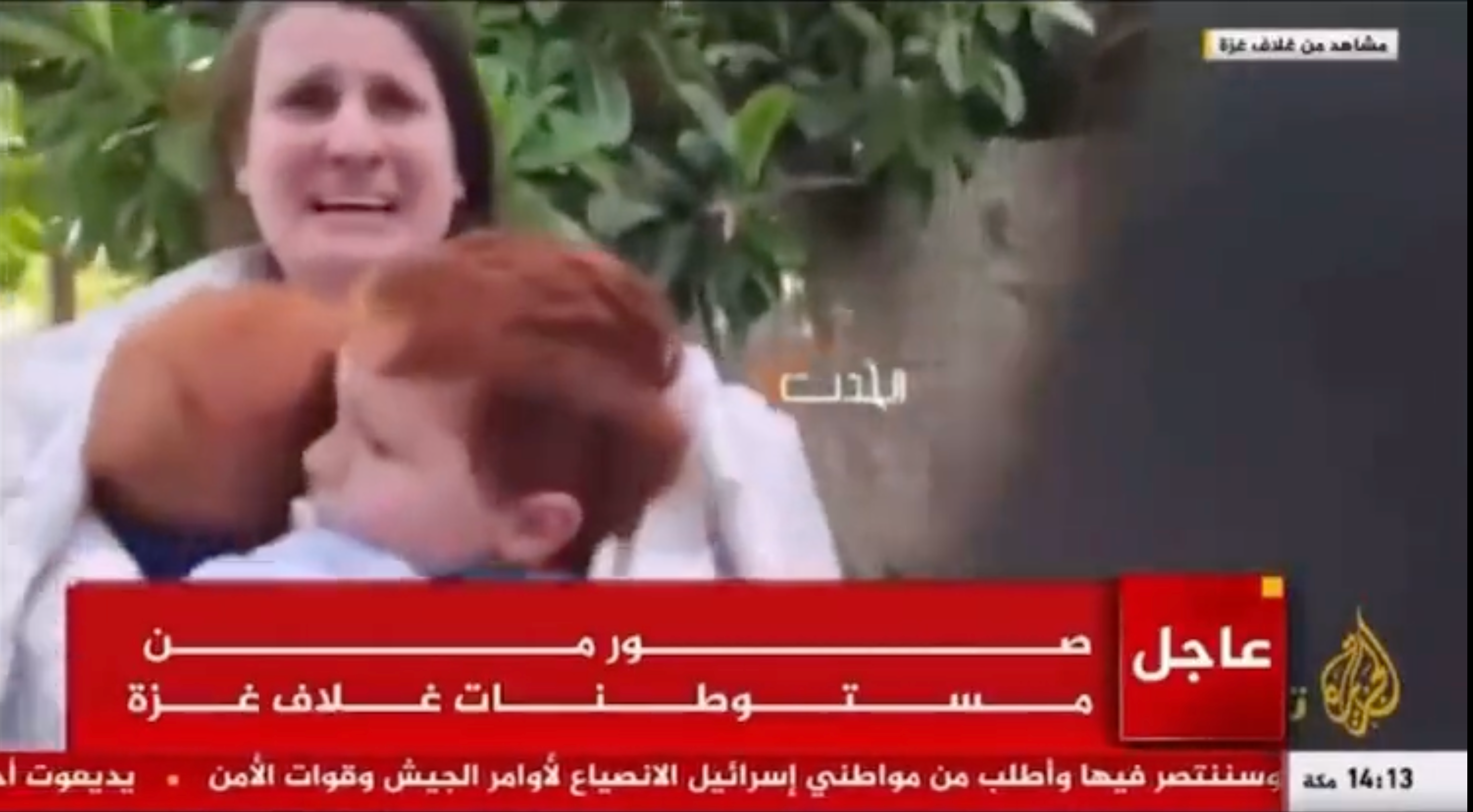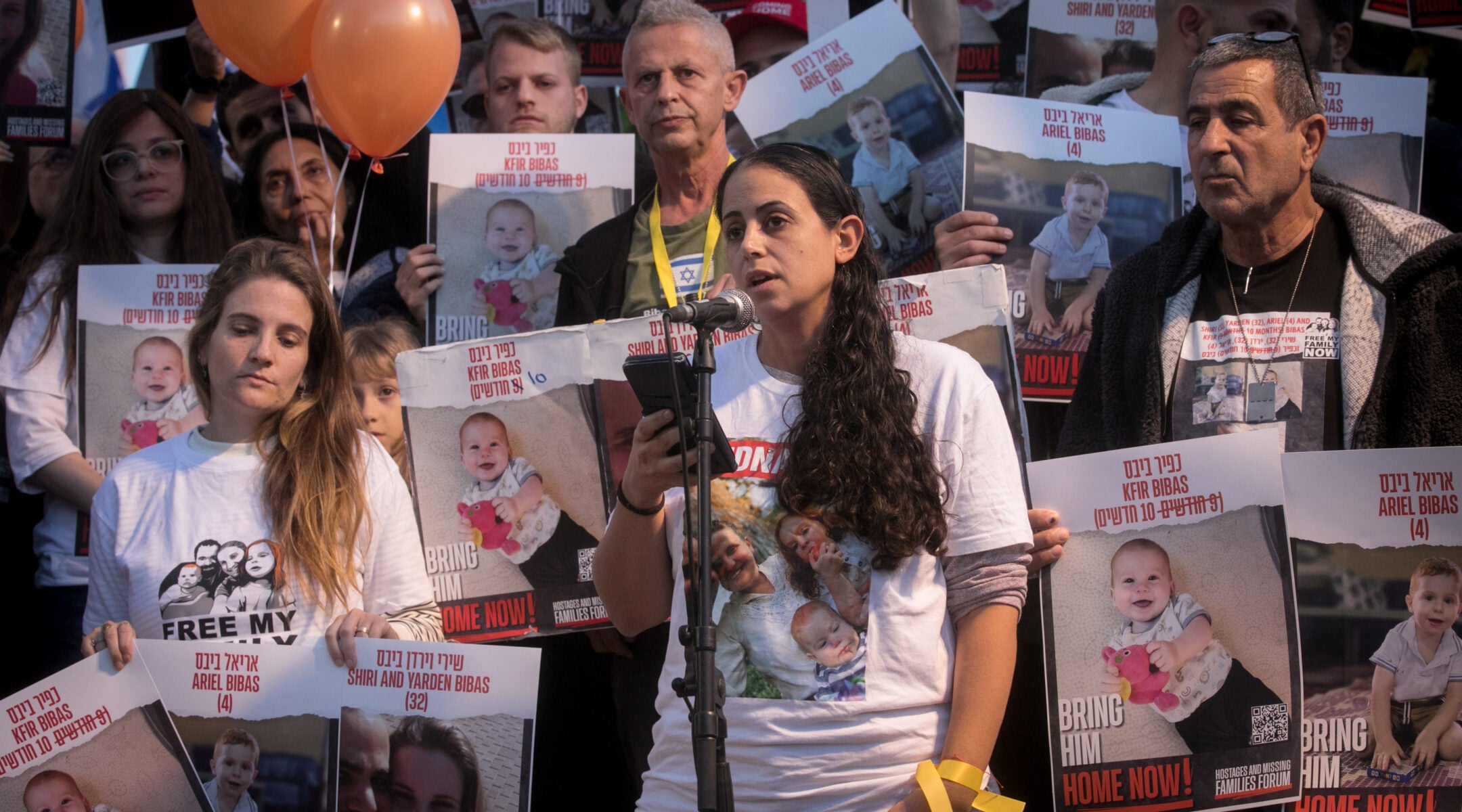TEL AVIV (JTA) — Surrounded by dozens of orange balloons representing the red-haired Bibas children held hostage in Gaza for 53 days, their aunt Ofri Bibas addressed their captors in Gaza.
“This is your enemy? Kfir, a 9- 10-month-old baby? Ariel, a 4-year-old boy?” she asked, adjusting Kfir’s age to reflect the milestone he has reached as a hostage. “Is kidnapping children in line with Islamic values?”
Kfir and Ariel became an early face to the hostage crisis on the morning of Oct. 7, when Hamas released a video clip showing them being abducted from Kibbutz Nir Oz along with their mother Shiri, whose terror was visible. Their father Yarden Bibas is also thought to be a hostage in Gaza. Now, after five days of hostage releases as part of a truce deal returned dozens of other children to Israel, the Bibas brothers are the youngest and perhaps most prominent children remaining in captivity.
Ofri Bibas, Yarden’s sister, was speaking in “Hostage Square,” a public space outside the Kirya military headquarters that has become a gathering place for the hostage families and their supporters. Tens of thousands of Israelis flooded the space last week before the truce deal and again on Saturday when Hamas delayed the release of a batch of hostages.

Orange balloons have become a symbol of the Bibas family because of the abducted children’s red hair. (Miriam Alster/Flash90)
On Tuesday, there were fewer people present — about 150. But in a powerful display, the crowd called orange balloons — to honor Kfir and Ariel’s red hair — instead of the yellow balloons that have been a hallmark of the movement to free the hostages.
“We thank all the people in Israel for the enormous support and hugs we are getting,” Ofri Bibas said in the wake of five consecutive days of anguished waiting, in which many prayed and hoped in vain for the Bibas family to appear on the daily list of released hostages. Even while her family’s reunification has not yet occurred, she noted that “the ceasefire allowed the return of people who became a part of our family and we are glad for each and every one that came back to his family.”
An IDF spokesman said Monday that Hamas said it had transferred the family to the custody of another terrorist group in Gaza, saying that was the reason that the children and their mother had not yet been released. Ofri Bibas said the family was not satisfied with that explanation.
“Hamas took them and Hamas is required to bring them back right now,” she said. “They’re responsible for their health and their freedom is directly in Hamas’s hands and responsibility.”
Ofri Bibas sat alongside Dana Siton, sister of Shiri Bibas, and Arab-Israeli pro-Israel activist Yosef Haddad. Hadded translated the family’s statement into Arabic in an effort to appeal directly to Emir of Qatar Tamim bin Hamad Al Thani and Egyptian President Abdel Fattah El-Sisi, who have been involved with the hostage negotiations.

Shiri Silberman-Bibas and Kfir Bibas are visible in footage taken by Hamas after they were taken captive on Oct. 7, 2023. (X)
“We ask for their intervention in releasing our family and all the other hostages and to bring in the Red Cross to give medical care,” Ofri Bibas said.
One of the protest attendees was Ruth Musael, a 78-year-old Australian-Israeli who moved to Israel in 1969. “I have tried to keep busy during this horrific and heartbreaking situation,” she said while holding an orange balloon. “Together with the joy and relief each day is full of tension,” she described the last few days, adding that “it is impossible to comprehend what these families are going through.”
After Haddad finished his translation of the family’s remarks in Arabic, he led the crowd in a bilingual chant of “now” in Hebrew and Arabic. Then Ofri Bibas instructed the crowd to release the orange balloons “with the hope that they reach …” she started, before pausing. “With the hope that our prayers reach all the way to Gaza.”
JTA has documented Jewish history in real-time for over a century. Keep our journalism strong by joining us in supporting independent, award-winning reporting.






